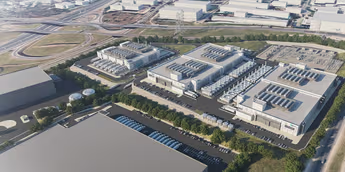2027: Buhari’s CPC Bloc Dismisses Defection Rumors, Reaffirms Loyalty to APC

By Erewunmi Peace
Despite growing speculation, prominent leaders of the Congress for Progressive Change (CPC) bloc within the All Progressives Congress (APC) have denied reports of a planned mass defection ahead of the 2027 general elections.
This comes amid circulating online reports suggesting that members loyal to the late former President Muhammadu Buhari—who originally rose to power through the now-defunct CPC—were planning to abandon the ruling party due to internal disagreements and shifts in party dynamics.
However, key CPC figures including Hon. Farouk Aliyu, Senator Tanko Al-Makura, and other prominent northern politicians have publicly reaffirmed their commitment to the APC and President Bola Ahmed Tinubu’s leadership.
“It is not true. There is nothing like CPC bloc members planning to leave APC,” said Farouk Aliyu, a close associate of Buhari.
“We remain firmly committed to the unity of the party and its victory in 2027.”
Earlier, some political observers had linked potential cracks in the APC to the recent defection of former Kaduna State Governor Nasir El-Rufai and criticisms by Babachir Lawal, a former Secretary to the Government of the Federation (SGF). These individual moves fueled rumors of a broader CPC bloc revolt.
CPC Bloc: A Powerful Legacy Within APC
The CPC was one of the legacy parties that merged to form the APC in 2013. Its loyalists, mostly from northern Nigeria, have maintained strong influence within the ruling party’s structure. Following Buhari’s passing, there have been internal realignments, but no official declaration of separation from the APC.
Senator Al-Makura emphasized that while individual members may act on personal political interests, the collective CPC bloc remains united under the APC umbrella.
What This Means Ahead of 2027
Political analysts note that the CPC bloc’s public show of loyalty is critical for the APC, especially as President Tinubu seeks to maintain national support heading into 2027. Any internal fracture could weaken the party’s grip on the northern electorate—a stronghold traditionally aligned with Buhari’s legacy.




















































































































































































































































































































































































































































































































































































































































































































































































































































































































































































































































































































































































































































































































































